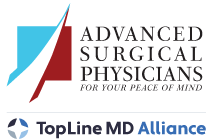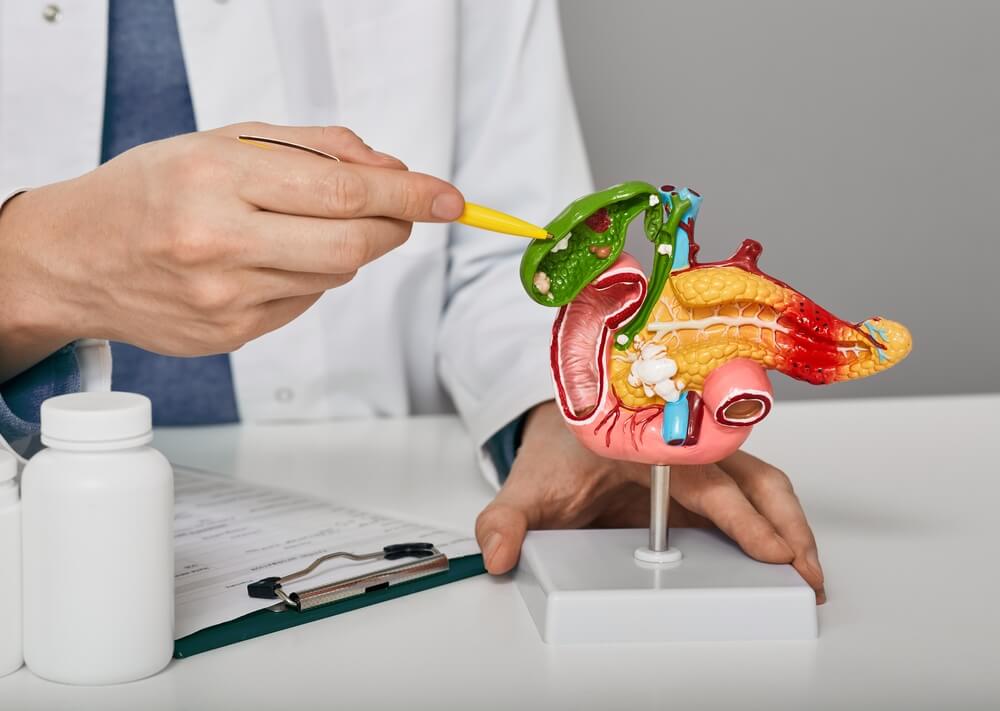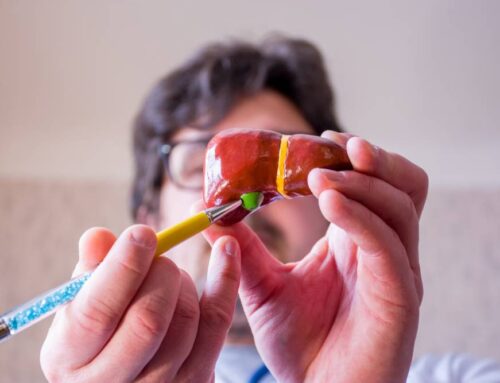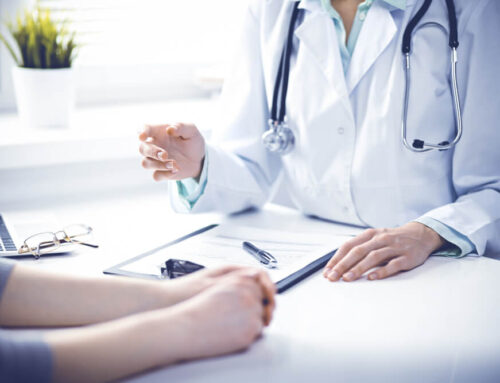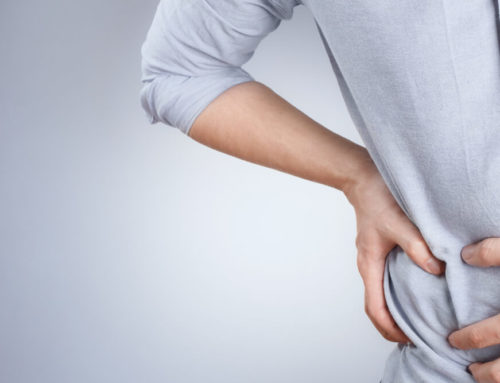If you are experiencing abdominal pain or other symptoms, such as chest pain and vomiting, you may be dealing with a condition called gallbladder sludge. In most cases, gallbladder sludge goes away without special treatment, but sometimes medical assistance may be necessary. If you or a loved one have recently been diagnosed with sludge in the gallbladder and you feel confused, this article is perfect for you. We have compiled all of the must-know information on the web about this medical condition. You’ll learn the facts about sludge in the gallbladder, its symptoms, causes, and possible treatment methods.
Regarding gallbladder treatment, it is best to consult a medical professional as soon as you notice recurring symptoms, including abdominal pain, nausea, vomiting, and similar symptoms. Since gallbladder sludge typically goes undetected, you will want to turn to a specialist for help. If you are looking for the best experts in the area, seek out Advanced Surgical Physicians in Wellington, Florida.
With that in mind, here are the critical facts about gallbladder sludge. Keep reading.
What is Gallbladder Sludge?
Before understanding what this medical condition refers to, let’s define the gallbladder. This small organ is located on the right side of the abdomen, beneath the liver. In short, the gallbladder stores bile from your liver until your body can release it into your intestines to help with digestion.
When the gallbladder does not empty properly, particles such as calcium salts and cholesterol may thicken from being in the gallbladder for an extended time. Eventually, these particles turn into biliary sludge or gallbladder sludge.
Overall, most individuals with biliary sludge will never know they had it in the first place. This is especially true with patients who experience this condition due to a temporary cause. Even though biliary sludge may seem harmless, it can lead to severe complications such as chronic pain. That said, biliary sludge is not a serious issue, unless the patient experiences it for a long time or if it causes severe life-debilitating symptoms.
To prevent this condition, patients are recommended to consume a wholesome, nutrient-dense gallbladder sludge diet. It is best to choose high fiber and healthy fat-rich foods such as vegetables, beans, whole grains, fruits, fish, and olive oil. Learn more about the specific gallbladder sludge diet later in this article.
The Most Common Symptoms of Sludge in the Gallbladder
Since gallbladder sludge does not typically cause symptoms, patients might never find out that they are dealing with this condition. However, some individuals may experience symptoms that are similar to gallbladder stones or inflamed gallbladder. The sign of sludge in the gallbladder is abdominal pain (typically in the upper right side under the person’s ribs). Usually, the painful sensation can increase after the person has had a meal.
Other symptoms of sludge in the gallbladder include:
- Pain in the right shoulder
- Clay-like stools
- Vomiting and nausea
- Chest pain
If you experience any of the mentioned symptoms, seek help from a trained medical professional for diagnosis and gallbladder sludge treatment. Although this condition is usually harmless, it can lead to further health complications. So, receiving proper gallbladder sludge treatment is vital for a speedy recovery.

The Causes of Gallbladder Sludge
Gallbladder sludge can have a few common causes. As mentioned, gallbladder sludge happens when bile stays in your gallbladder for an extended time. The mucus from the gallbladder mixes with calcium salts and cholesterol, resulting in the sludge.
In most cases, pregnant women experience sludge in the gallbladder. This is especially true for pregnant women who are following a specific diet.
Even though gallbladder sludge is relatively uncommon, some individuals may have a higher chance of developing it. For instance, people who belong to the following groups are at higher risk of gallbladder sludge:
- Individuals with diabetes
- Individuals who are critically ill
- Individuals who were obese and then lost weight fast
- Individuals who have had an organ transplant
- Individuals with Native American ancestry
- Individuals who receive nutrition through an IV
Moreover, women are at higher risk of developing gallbladder complications than their male counterparts.
Diagnosing Sludge in the Gallbladder
If you or a loved one are experiencing some (or all) of the mentioned symptoms, seek out the help of a trained medical professional at a reliable and safe clinic. The doctor will ask you about your symptoms and medical history. After this, the professional will perform a routine physical exam to check different parts of your abdomen.
If the doctor suspects that you may have problems with your gallbladder, they will possibly order an abdominal ultrasound. This is a very efficient way to detect possible gallstones.
If you are diagnosed with gallbladder sludge or gallstones post-ultrasound, your doctor may want to run further tests to check the exact cause of your problem. Some of these tests will include a blood test (which will check your sodium and cholesterol levels). Moreover, the professional may want to run a blood test to check whether your liver is working correctly. In some cases, doctors can locate gallbladder sludge accidentally. This can happen when the professional analyzes the ultrasound or CT scan results that were ordered for another condition.
The good news is that, in most cases, gallbladder sludge resolves without requiring further medical assistance. Unfortunately, sometimes, it can lead to painful gallstones, and they may require you to undergo surgery. Additionally, some patients may deal with gallstones causing an obstruction in the bile duct. In these scenarios, patients need to receive immediate medical attention.
When left untreated, gallbladder sludge can contribute to or cause cholecystitis or an inflamed gallbladder. This condition can cause severe chronic pain.
Possible Gallbladder Sludge Treatment
In most cases, this condition does not require special medical assistance. Namely, once the underlying cause disappears, the sludge will go away too. Patients may receive prescription medication to assist in dissolving any sludge or potential gallstones. Conversely, gallbladder sludge treatment may be necessary if the patient experiences inflammation, gallstones, or pain. Sometimes, the doctor may recommend removing the entire gallbladder. If you are dealing with recurring gallbladder sludge, you may want to change your lifestyle. For instance, you’ll want to start consuming a low-fat, nutrient-dense diet with plenty of vitamins, minerals, and quality protein.
The Best Gallbladder Sludge Diet
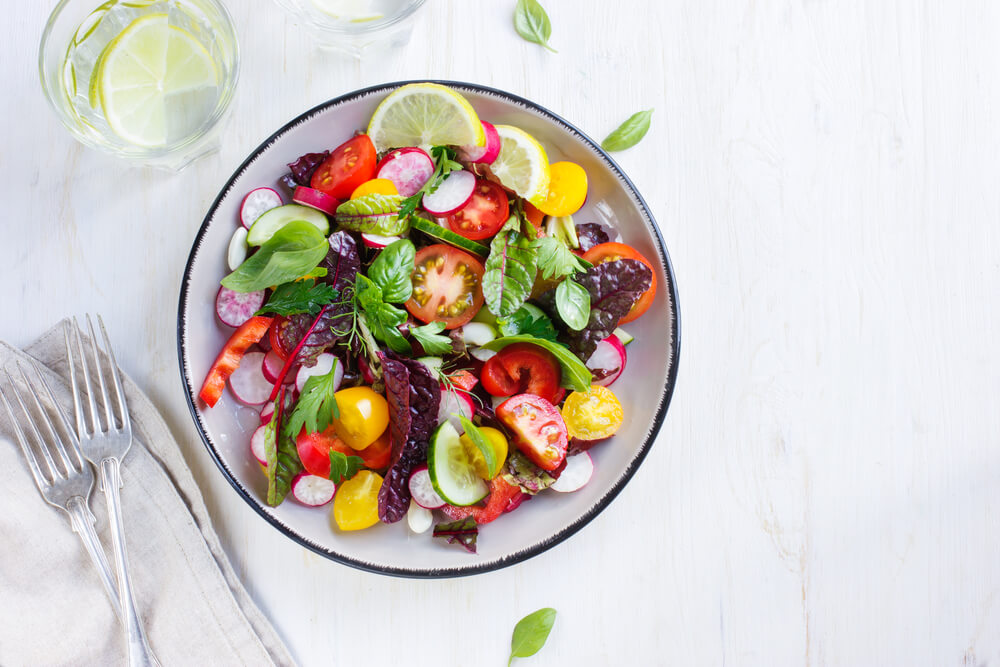
One of the easiest and best ways to heal our bodies is to be more mindful of the foods we are eating. When it comes to resolving any gallbladder sludge complications, the best way to do it is through a healthy and balanced diet. Here is the best gallbladder sludge diet and how to do it properly.
Overall, the gallbladder diet aims to alleviate the stress that a traditional diet can impose on our gallbladders (either by supporting the gallbladder or helping with digestion).
Experts recommend increasing your intake of:
- Fresh vegetables and fruits
- Pure fruit juice
- Low-fat dairy products
- Nuts
- Legumes
- Whole grains
- Spices
On the other hand, you will want to decrease or altogether remove the following foods from your diet:
- Processed meat
- Refined grains
- Red meat
- Soft drinks
- Sugar
- Solid fat
- High-fat dairy products
- Processed snacks
- Salt
- Pickled foods
In essence, focus on incorporating more plant-based foods rich in antioxidants, minerals, and vitamins. Antioxidants are essential because they help you eliminate toxic molecules or free radicals. Also, make sure to add more lean protein into your diet, including:
- Fish
- Poultry
- Soy products and soy
- Seeds and nuts
- Zero fat dairy products
- Legumes such as lentils and beans
Give Us a Call Today
Contact us if you have any questions or concerns about your health. Our team of professionals will help solve all of your problems and get your health back on track. Reach out to us today.

